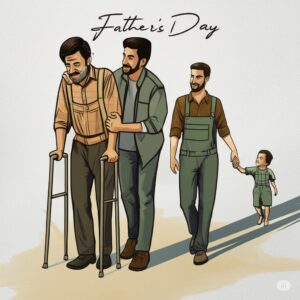Hon’ble Supreme Court’s Ruling: Government Employees Can Avail CGHS Benefits at Any Private Hospital
Hon’ble Supreme Court’s Verdict: CGHS Benefits Extended to Private Hospitals for Government Employees
In a landmark ruling, the Hon’ble Supreme Court of India upheld the right of central government employees to receive medical reimbursements even if they undergo treatment at non-empanelled private hospitals. The judgment ensures that employees and pensioners under the Central Government Health Scheme (CGHS) are not denied medical claims based on technicalities.
This decision is a significant victory for government employees who struggle with bureaucratic delays and restrictive policies on medical reimbursements. Let’s explore the case, the verdict, and its implications for millions of beneficiaries.
Case Background: The Fight for Medical Reimbursement
The case involved Shiva Kant Jha, a retired government employee who sought medical reimbursement for treatment at a private hospital that was not listed under CGHS.
- His claim was partially denied, with authorities arguing that the implant used in his treatment was unnecessary.
- Jha challenged the decision, highlighting the challenges faced by retired government personnel in receiving medical benefits.
- He approached the Hon’ble Supreme Court, questioning the legality of denying reimbursement for essential treatment based on hospital empanelment status.
Key Legal Question
The Hon’ble Supreme Court had to decide:
- Can medical reimbursement be denied simply because the treatment took place in a non-empanelled hospital?
- Do government employees have the right to claim healthcare benefits regardless of the hospital’s status?
Hon’ble Supreme Court’s Verdict on CGHS Facility
Key Highlights of the Judgment
- Medical Claims Cannot Be Denied on Technical Grounds
- The Hon’ble Supreme Court ruled that authentic medical treatment matters more than empanelment status.
- The Court stated: “The right to medical claim cannot be denied merely because the name of the hospital is not included in the Government Order.”
- Government’s Duty to Provide Healthcare
- The Hon’ble Court emphasized that healthcare access is a fundamental right of government employees and pensioners.
- The central government is responsible for ensuring medical security to its employees, both active and retired.
- Reimbursement Should Not Be Delayed
- The judgment directed the formation of a High-Powered Committee to handle such cases efficiently.
- Government officials must ensure timely processing of medical claims for pensioners.
Impact of the Supreme Court’s Decision
1. Emergency Treatments Become Easier
- Employees can seek immediate treatment at the nearest available hospital, without worrying about its empanelment status.
- In critical cases, this ruling removes unnecessary delays in accessing healthcare.
2. Pensioners Get Fair Treatment
- Retired personnel, who dedicated their lives to government service, will now receive equal healthcare rights.
- They can choose the best possible hospital for treatment without worrying about reimbursement rejection.
3. Increased Accountability for the Government
- The ruling puts pressure on CGHS authorities to process claims efficiently.
- The High-Powered Committee will ensure faster dispute resolution in reimbursement cases.
4. A Step Toward Healthcare Reforms
- This judgment highlights the need for policy changes to expand CGHS benefits.
- It could lead to new government initiatives ensuring healthcare for all employees without bureaucratic hurdles.
Challenges & The Road Ahead
Despite the ruling, some challenges remain:
- Bureaucratic Resistance: Many government departments still follow outdated rules, delaying claim approvals.
- Awareness Among Employees: Employees may not be fully aware of their new rights under this ruling.
- Need for Policy Reforms: The government should update CGHS guidelines to reflect this judgment.
Suggested Reforms
To ensure smooth implementation, the government should:
- Amend CGHS policies to include all private hospitals.
- Create an online reimbursement system to reduce paperwork delays.
- Conduct awareness campaigns for government employees and pensioners about their healthcare rights.
What This Means for Government Employees & Pensioners
For Government Employees
✅ You cannot be denied reimbursement even if you get treatment from a private hospital.
✅ Emergency treatments at any hospital will be covered.
✅ If your claim is unfairly rejected, you can appeal based on this Supreme Court ruling.
For Pensioners
✅ You do not have to rely solely on CGHS-empanelled hospitals.
✅ All necessary medical treatments must be fully reimbursed.
✅ The High-Powered Committee will resolve disputes in case of claim delays.
Final Thoughts
The Hon’ble Supreme Court’s ruling on CGHS facilities is a landmark decision that safeguards the medical rights of central government employees and pensioners. By ensuring that medical claims are not denied due to hospital empanelment, the judgment provides a fair and inclusive healthcare system for government personnel.
As India moves towards better healthcare policies, this ruling highlights the need for more reforms in medical reimbursement policies. Employees and pensioners must stay informed about their rights and demand the benefits they deserve.
What are your thoughts on this ruling? Do you think the government should further expand CGHS benefits? Let us know in the comments!
Share this content:












Post Comment